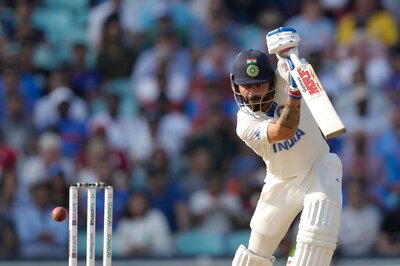
views
New Delhi: Led by higher than expected non-tax revenue like auction of 3G spectrum, Finance Minister Pranab Mukherjee today pegged the fiscal deficit at 5.1 per cent for the current financial year, and further reduced the estimates to 4.6 per cent for 2011-12.
Mukherjee said the revenues from 3G and Broadband Wireless Access (BWA) spectrum auction (that garnered Rs 1.08 lakh crore) has helped government reduce the fiscal deficit for the current fiscal, from 5.5 per cent estimated earlier.
"Due to the higher than anticipated non-tax revenue from 3 G spectrum auction... I have brought down the fiscal deficit from 5.5 per cent to 5.1 per cent of the GDP for 2010-11," Mukherjee said in his 2011-12 Budget speech.
"During the course of 2010-11, I had the opportunity to bring in improvement in fiscal balance", he said.
"For the year 2011-12 I have kept it (fiscal deficit) at 4.6 per cent of GDP which improve upon my own target of 2011-12 indicated in the fiscal roadmap presented in the last budget," Mukherjee said.
The pre-budget Economic Survey Survey tabled in Parliament last week had pegged the fiscal deficit for the current fiscal at 4.8 per cent.
India's fiscal deficit had ballooned to 6.3 per cent of the GDP in 2009-10 in view of stimulus spending worth billions of dollars to combat global financial meltdown.
In the medium term fiscal policy, Mukherjee pegged the rolling target of fiscal deficit at 4.1 per cent for 2012-13, and 3.5 per cent for 2013-14.
In his Budget speech, Mukherjee pegged the revenue deficit for the current fiscal and 2011-12 at 2.3 per cent and 1.8 per cent respectively.
The government had in 2010 mobilised Rs 1.08 lakh crore from auctioning of spectrum for 3G and broadband wireless access (BWA) services.
Besides, it also followed the path of consolidation during April-December of 2010-11, as it partially withdrew the sops given to the industry in 2008 and 2009.
Stimulus package provided by the government at the time of financial meltdown helped India to grow by 6.8 per cent in 2008-09, and by 8 per cent in 2009-10.




















Comments
0 comment